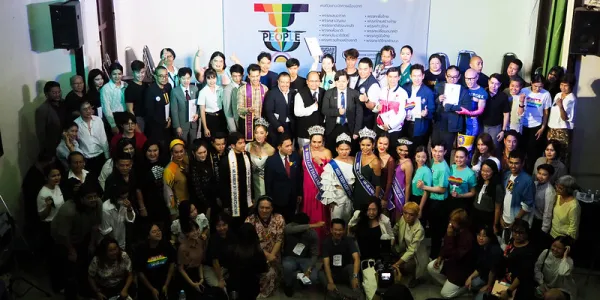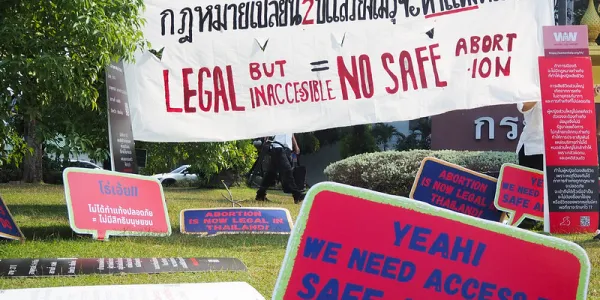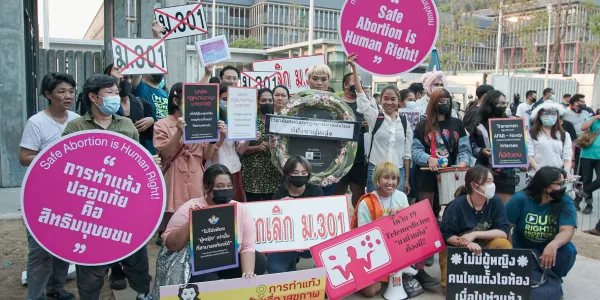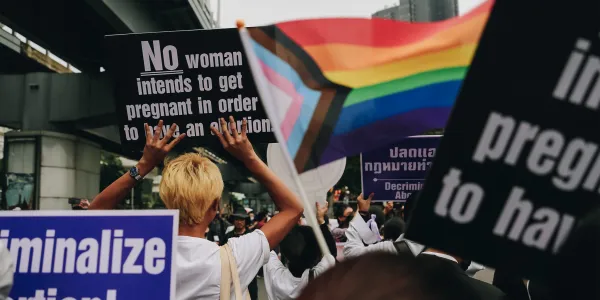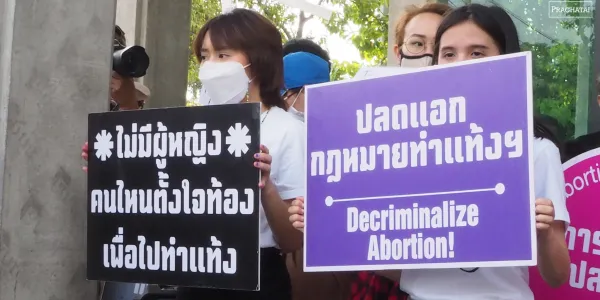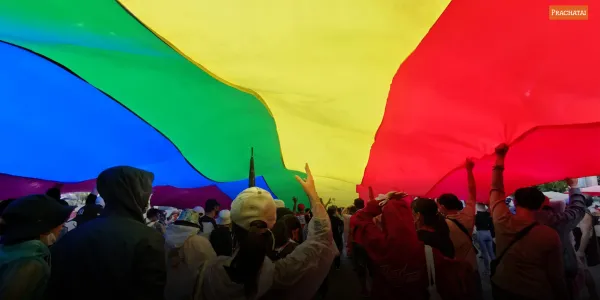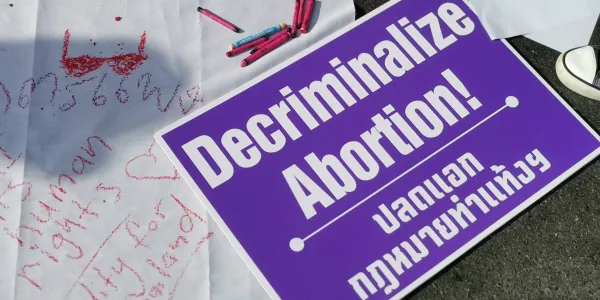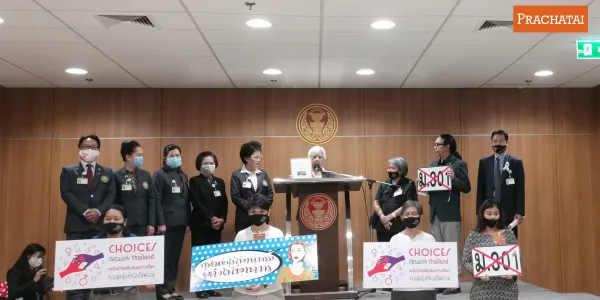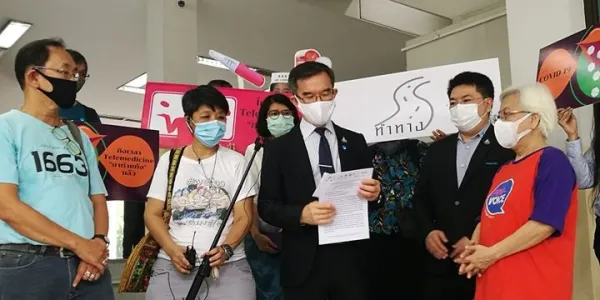By Anna Lawattanatrakul |
As the 2023 general election approaches, activists and members of civil society hope for policies that will ensure LGBTQ rights and gender equality for Thailand.
By Anna Lawattanatrakul |
<p>Two years after Thailand passed an amendment to the Criminal Code legalising abortion up to the 12th week of pregnancy, access to services remains difficult due to lack of information and facility and prejudice from medical personnel, while the Ministry of Public Health has refused to cover abortion fees for people not covered by the “Gold Card” universal healthcare scheme.</p>
By Prachatai |
<p>The new abortion law, in which abortion after the 12th week of pregnancy is still a criminal offence, does not respect international human rights principles, says a network of activists and civil society organisations who gathered in front of parliament on 25 January, when the bill was passed by the Senate.</p>
By Prachatai |
<p>The Thai parliament on 20 January passed a new bill allowing abortion up to the 12th week of pregnancy. However, the bill does not decriminalize abortion, as abortion after the 12th week of pregnancy is still a criminal offense. </p>
By Prachatai |
<p>On Wednesday (23 December), the Thai parliament voted to accept the first reading of two bills which amend Sections 301 – 305 of the Criminal Code, which currently criminalize abortion.</p>
By Thidatep Piboon |
<p>Women and the LGBT community have joined pro-democracy protests campaigning to abolish patriarchy, gender stereotypes and social norms that marginalize gender equality. They are also collecting signatures for petitions to decriminalize abortion and sex work.</p>
By Prachatai |
<p>The Women for Freedom and Democracy group has set up a station at today's protest at the Democracy Monument for people to sign their petition calling for the decriminalization of abortion.</p>
By Prachatai |
<p>On Wednesday (10 June), representatives from Choices Network Thailand and the Tamtang Group went to parliament to submit a petition to the Standing Committee on Children, Young People, Women, the Elderly, Persons With Disabilities, Ethnic Groups, and LGBT People calling for the repeal of Article 301 of the Thai Criminal Code, which criminalises abortion.</p>
By Prachatai |
<p>Choices Network Thailand, along with a network of civil society organizations, went to the Department of Health (DOH) on 15 May to submit an <a href="https://www.safeabortionwomensright.org/thailand-petition-to-the-department-of-health-to-ensure-that-women-can-access-safe-abortion-services-during-the-covid-19-pandemic/">open letter</a> to the DOH Director-General calling for the DOH to ensure that women can access safe abortion services during the Covid-19 pandemic.</p>
By Prachatai |
<p>On Wednesday (19 February), the Constitutional Court of Thailand ruled that Section 301 of the Thai Criminal Code which criminalizes abortion, violates the current Constitution and must be amended. </p>
By Takato Mitsunaga |
<p>Since Buddhist teachings are against abortion and most Thais believe in Buddhism, the spread of abortion in Thailand demands an understanding of how Buddhism deals with this. Under Section 301 of the Criminal Code, abortion is illegal in Thailand except (Section 305) when the pregnancy threatens the mother’s health, which has been interpreted to include both physical and mental well-being, or when it is the result of rape, incest or other unlawful sexual contact. The Women’s Health and Reproductive Rights Foundation of Thailand (WHRRF) reports that about 300,000 people undergo abortions each year in Thailand.</p>
<p></p>

